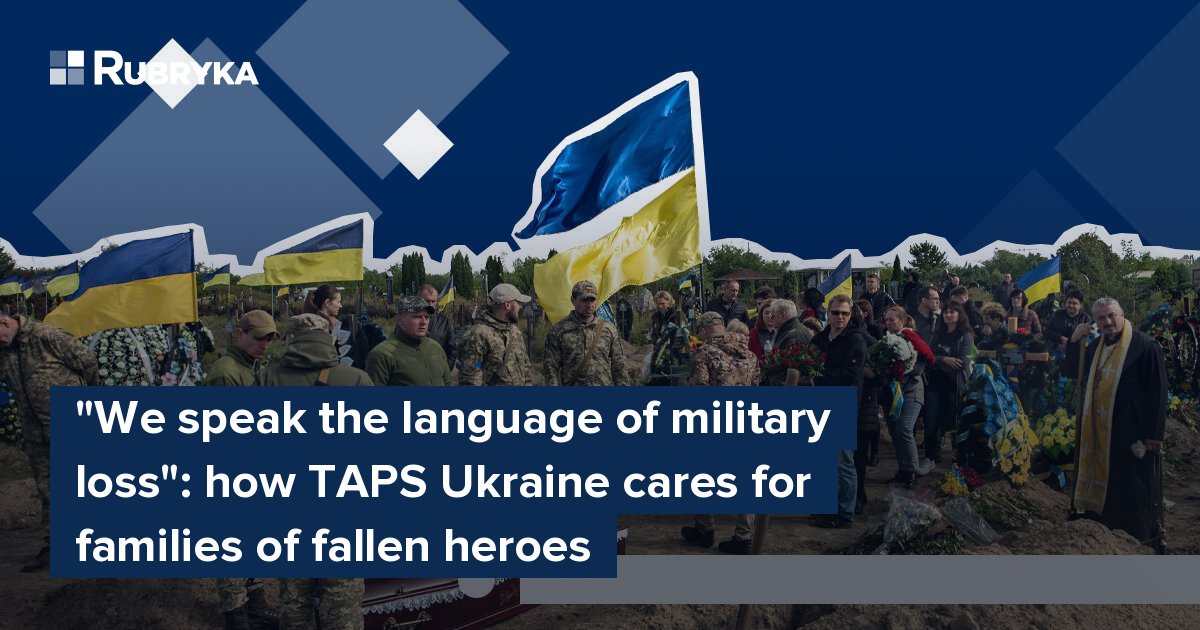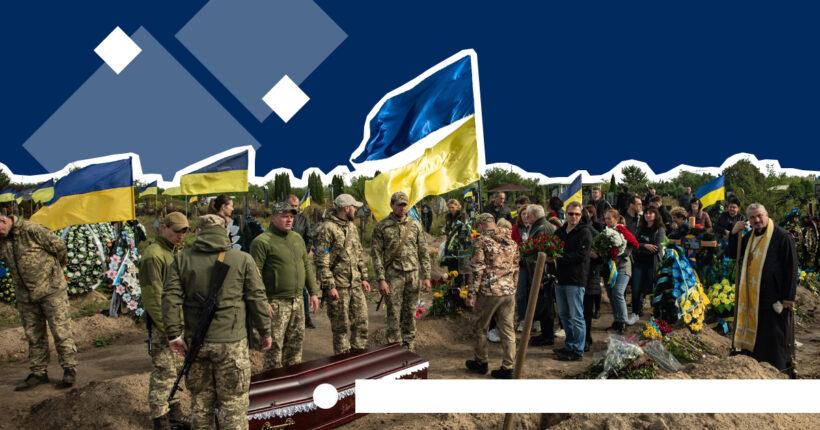
A public organization in Dnipro helps people who lost a defender in the war to rebuild a "bridge" or find a "boat" to leave this deserted piece of land. The TAPS Ukraine branch has been operating since 2018 when Ukraine joined the international network — it became the 24th member of the large TAPS family.
What helps families keep on living? How to support people who lost relatives in the war? What words are better never to say to them? All this is in our article.
What is the problem?
"Loss burns out everything in the soul"
In the first seven years of the war in Donbas alone, approximately 4,150 Ukrainian soldiers died, according to data from the Office of the United Nations High Commissioner for Human Rights.
At the beginning of December 2022, the adviser to the head of the Office of the President, Mykhailo Podoliak, stated that during the full-scale invasion of Ukraine, 10 to 12.5-13,000 defenders had died since February 24.
Each family experiences mourning differently. Olena Shylova lost her husband in July 2015. Serhii "Green" was in the Right Sector volunteer battalion and was blown up by a mine near Hnutov. Doctors in Dnipro fought for his life but in vain. The man died.
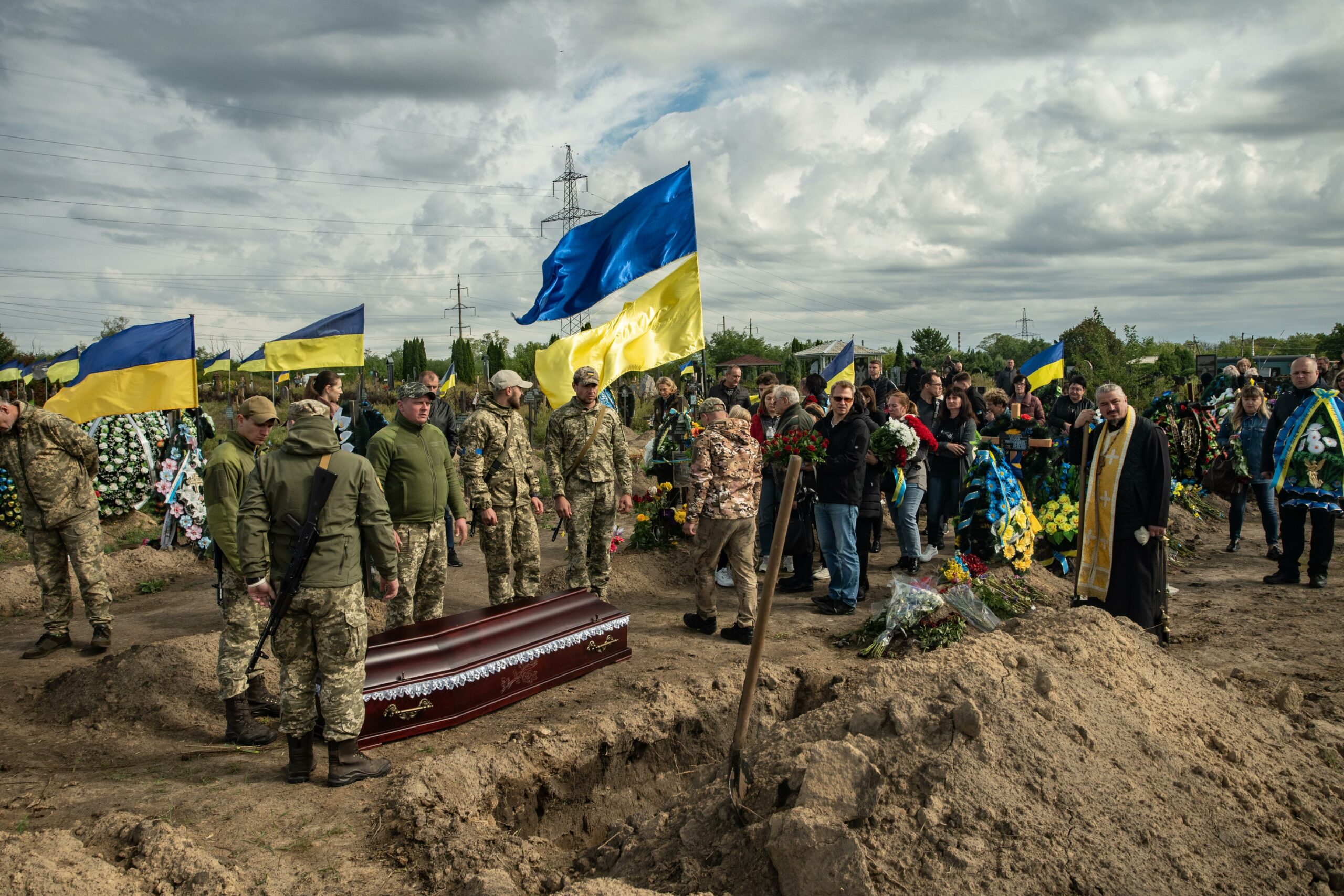
"Loss burns out everything in the soul. Inside is a burnt field," says Olena Shylova. She proved for three years that her Serhii was a volunteer fighter. All this time, volunteers helped the woman. The widow decided that as soon as she finished with this, she would support people who lost relatives. And so it happened. In 2018, Olena Shylova became a psychologist at TAPS Ukraine.
"After a loss, you seem to be left alone on some island. You seem to see everything and notice everything. But you are alone with your emotions and feeling of emptiness. It is a loss of support, a part of oneself and a part of life. Loneliness comes, followed by fear of the future. There is not enough strength. Emotions are very complex, and there are many of them. Girls who have lost their husbands say that no one understands them. Society is a little horrified: 'She walks like a leper.' People don't know how to be close to someone who has lost a loved one," says the psychologist.
What is the solution?
The TAPS Ukraine public organization rallies families who have lost a defender, providing them with psychological and social assistance. The branch has been operating in Dnipro since 2018.
"Everyone here speaks the same language — the language of military loss. I realized that I lacked something similar after Serhii's death — having people like me around," says Olena Shylova.
TAPS Ukraine teaches the wards to live not through loss but with loss.
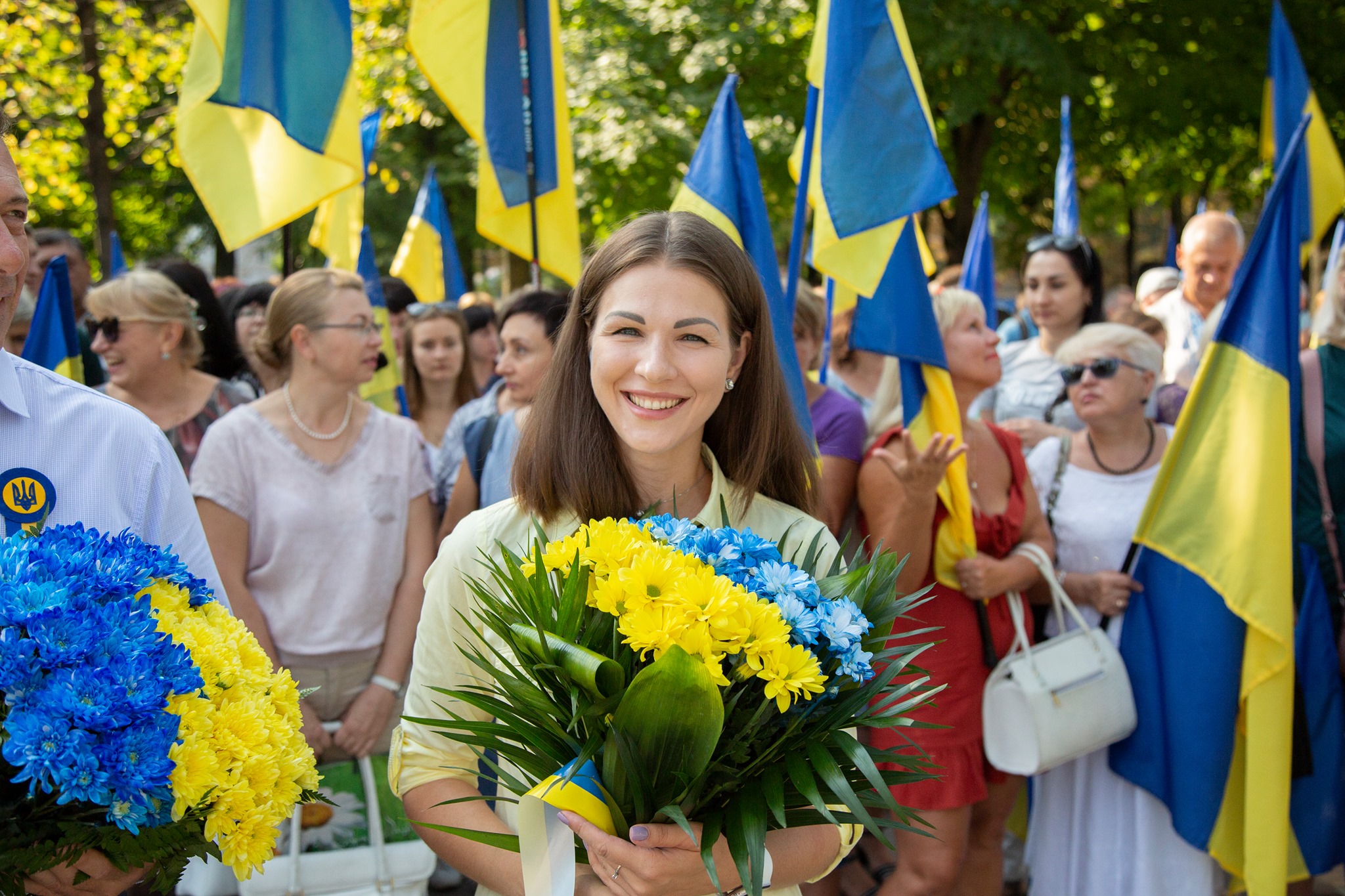
Olena Shylova
How was TAPS Ukraine born?
In 2016, Dnipro city council member Yulia Dmytrova visited the US. It was an exchange of experience with colleagues from the US State Department. Since 2014, the woman has worked as a volunteer with service members and families of the fallen, so the meeting with TAPS USA representatives affected her the most during the visit.
TAPS is a national non-profit organization that helps and cares for those experiencing the death of a military person or veteran. Since 1994, TAPS has been creating programs for victims at the national and international levels. It is an international organization. Countries join the network to take care of people together.
"TAPs has a comprehensive program of work with the deceased's families. The work of American colleagues can be adapted to Ukrainian realities and launched. After returning to Dnipro, we started corresponding with TAPS," says Yulia Dmytrova.
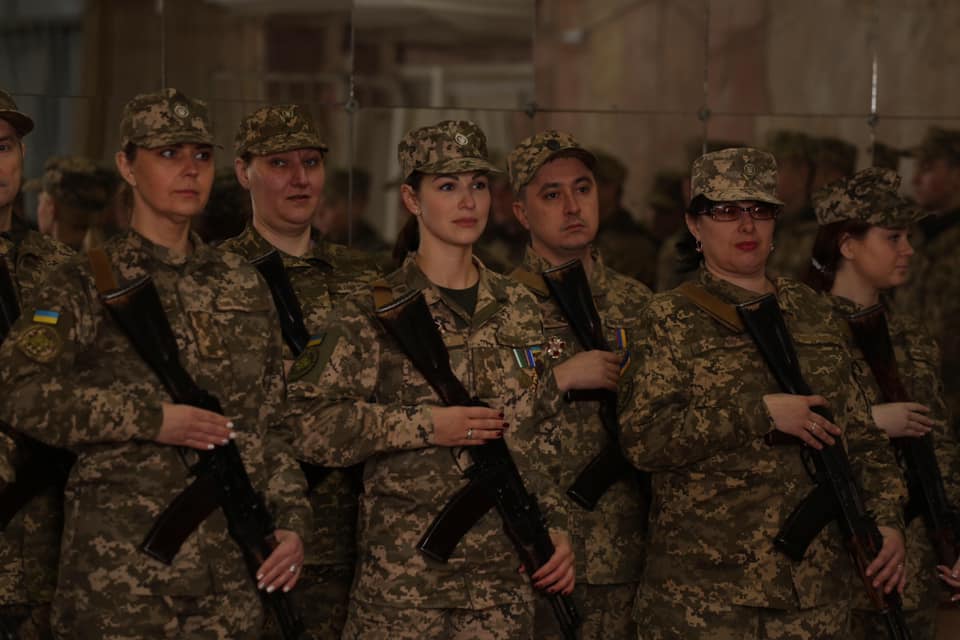
In the letters, they discussed the creation of a Ukrainian branch — precisely in Dnipro. There were several reasons.
"We were the first to start mobilizing the voluntary movement in 2014. The largest number of service members went to fight the invaders from the Dnipropetrovsk region. Accordingly, there were many casualties," says Yulia Dmytrova.
In 2018, the TAPS-Ukraine public organization and charity fund of the same name appeared in Dnipro. Members of the board were elected from the families of fallen heroes of the Dnipropetrovsk region. The union's philosophy is as follows: a simple civilian who did not lose anyone in the war can be a volunteer in TAPS, but the families of the deceased should lead the project because they understand each other better.
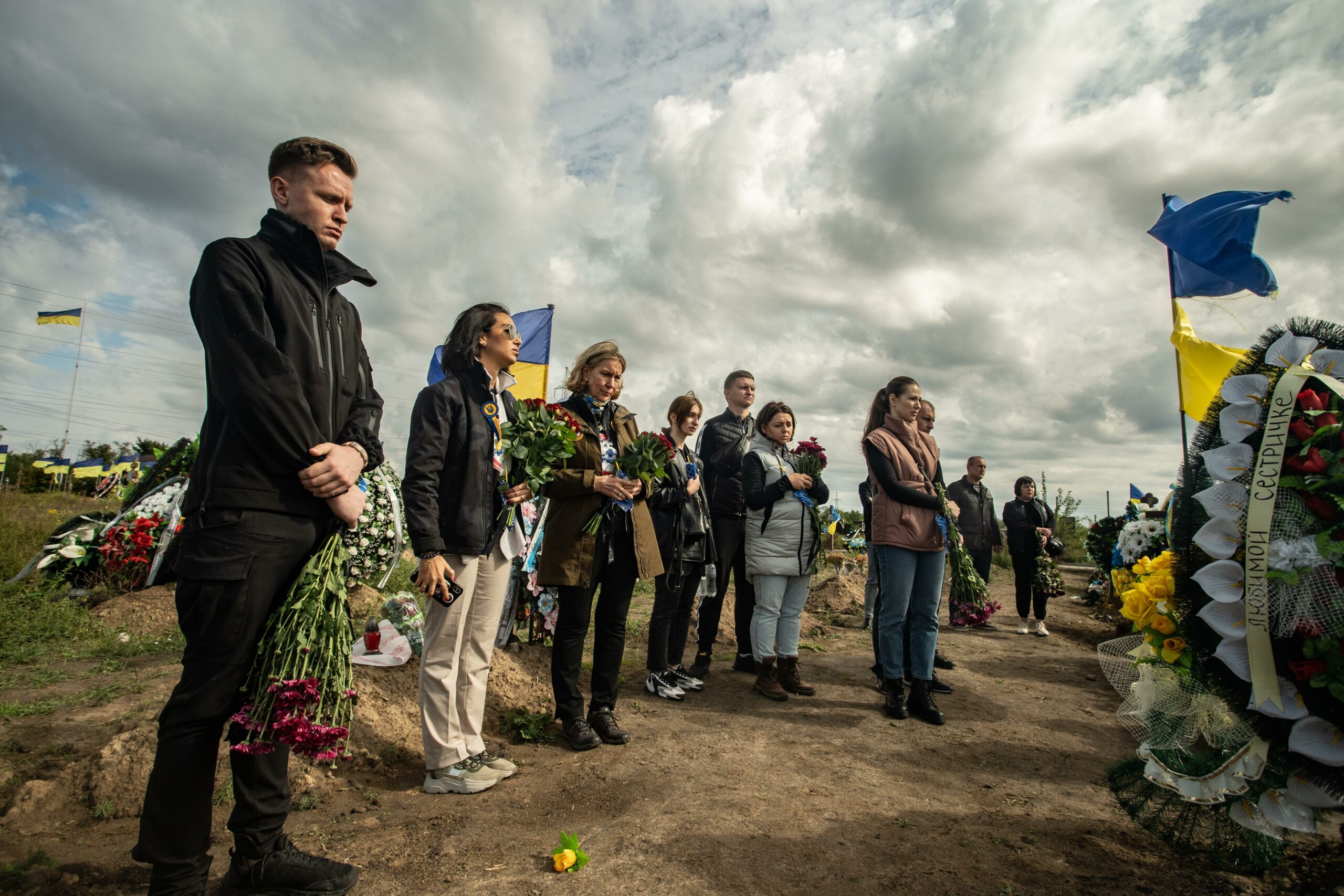
Ukraine became the 24th country to join the international network. Colleagues from TAPS International transferred to Dnipro their methods of working with the families of the deceased soldiers.
During its existence, TAPS Ukraine has already held hundreds of events. Their goal is to psychologically support families experiencing the loss of loved ones in the war—currently, a group of 60 specialists "guide" families from Dnipro and the region.
"We have classes with psychologists. We also create large forums where we gather the families of the deceased soldiers. There are separate locations for children and adults. This is a daytime event with many activities, starting with pottery, art therapy, massage, yoga — everything that can free your thoughts and relax your body," says Yulia Dmytrova.
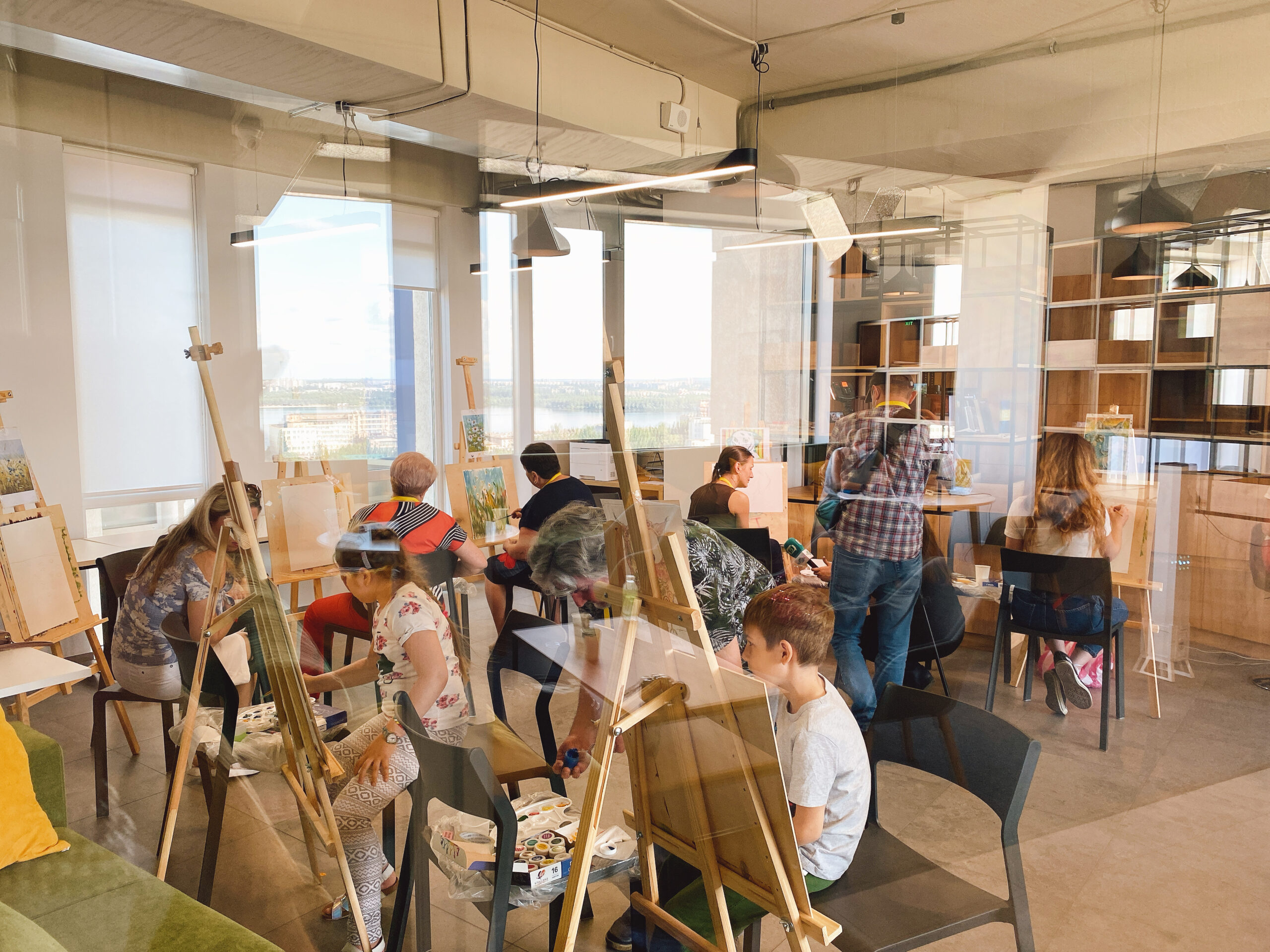
2014 and 2022
According to Yulia Dmytrova, people who lost their loved ones from 2014 to 2022 were not ready to work with TAPS. They refused to work with psychologists. But the organization's members still distributed and sent their materials to families so those who dared could still turn to TAPS. Many people started getting involved in the organization's activities only a few years after the loss.
A different situation has developed since February 24. Since the beginning of the full-scale invasion, TAPS Ukraine has accompanied the families of the deceased: from the news of the loss of a loved one to the burial, and then to work with a psychologist or other types of help.
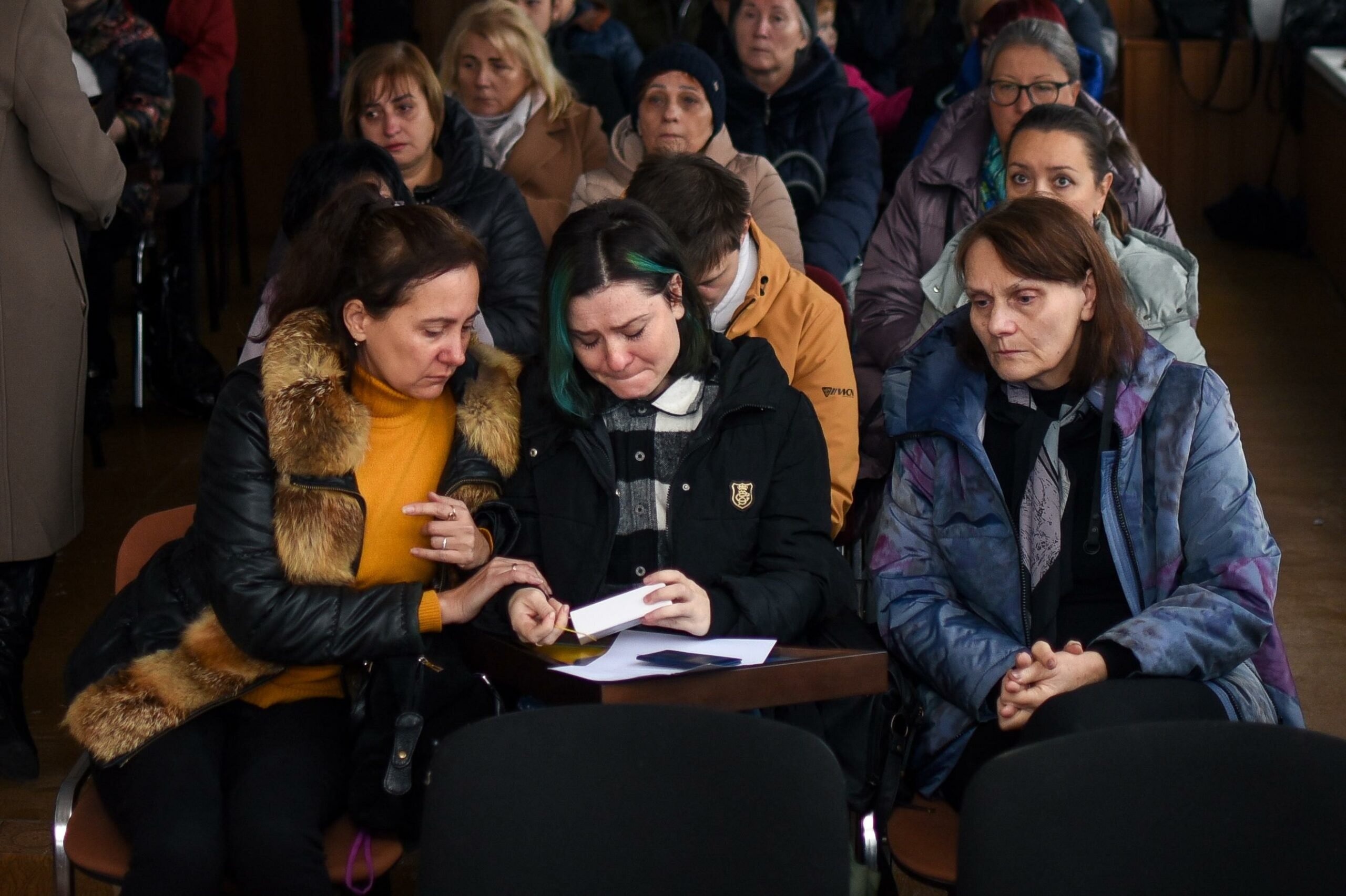
"Families who lost their loved ones in 2022 immediately work with psychologists. They know they need help, so they turn for help themselves; no one needs to be persuaded. But we cannot bring them out of grief so quickly. It takes time. We communicate and pay attention to each other, so they know they are not alone," says Yulia Dmytrova.
Oleh Chabanenko, a psychotherapist who has been working with the families of fallen soldiers since 2014 and helps them within TAPS, says that after February 24, the portrait of the family that lost a loved one has completely changed, as has the grieving process itself.
"In 2014, there was confusion and uncertainty among people. At that time, no one called the war a war. For everyone, it was ATO [anti-terrorist operation]. However, Ukrainians died or returned to a peaceful life with disabilities. After February 24, we hardened. People have become psychologically different — mature. Finally, the authorities called the war a war. The enemy was called an enemy. The country that attacked us was called an aggressor. It put all the missing dots," says Oleh Chabanenko.
In addition, trust in psychologists has increased over the past eight years. Ukrainians are ready to turn to specialists and work with them, and they come already motivated.
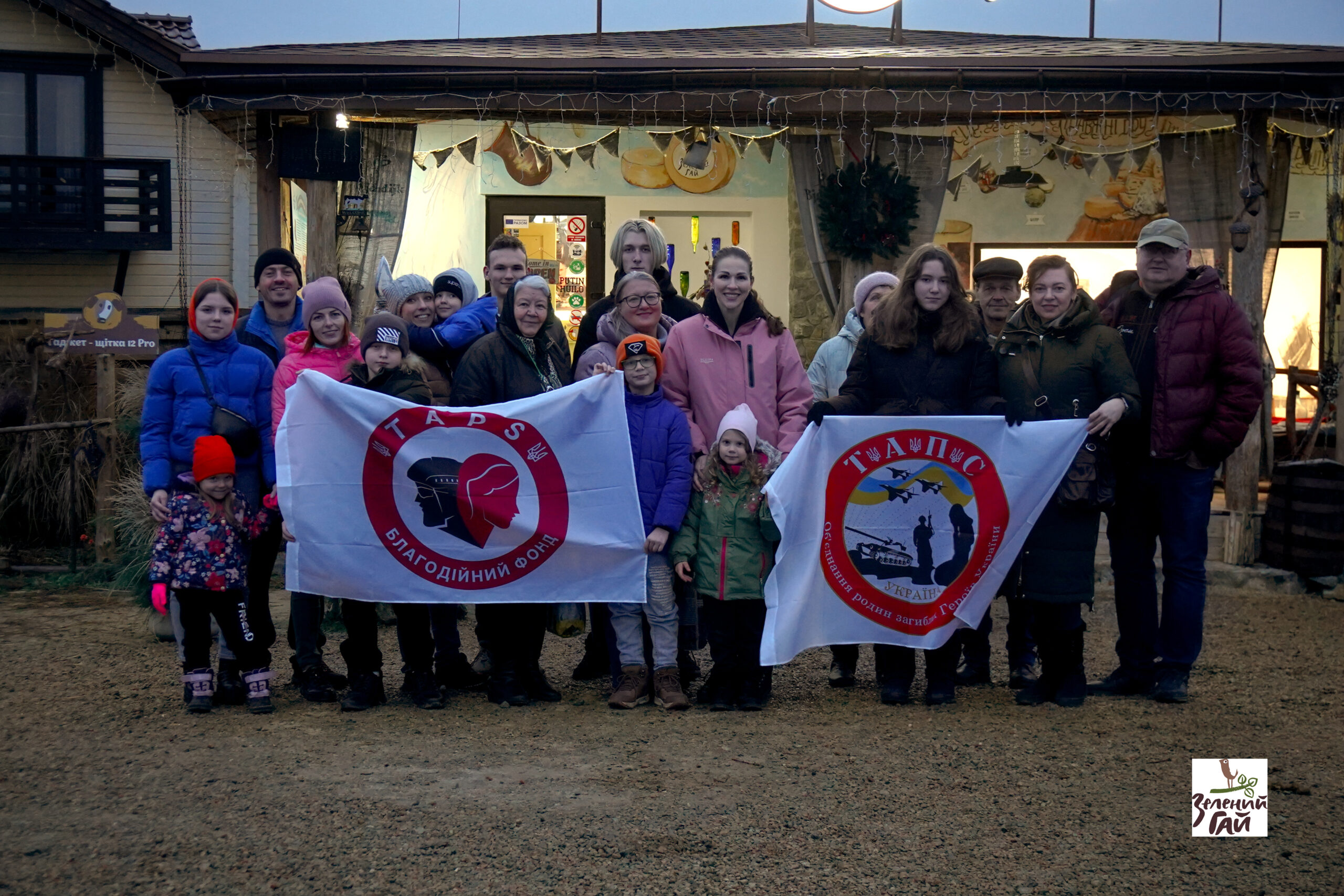
How does it work?
When families who have experienced a similar loss communicate with each other, it is easier for them to cope with grief.
"We try to gather people who are in mourning and do something with them. We went to sacred places, visited eco-farms, went on hikes, rafted on kayaks, and cooked a lot. During the active phase of covid, they sat down and sewed masks because joint work brings people together. It seems: how will making dumplings help to overcome some emotions? But a specialist is always nearby who directs the conversation in the right direction. The virtuosity of psychotherapy lies in the fact that people do not even realize that they have attended a session with a psychotherapist."
Bereaved families are divided into groups. Bereaved mothers work with bereaved mothers, fathers with fathers, and wives with wives. Oleh Chabanenko explains why:
"A man's mother and wife cannot always find a common language. A mother can say: 'You don't understand how it hurts when you lose a child. And you will find a husband.' But these words are very offensive."
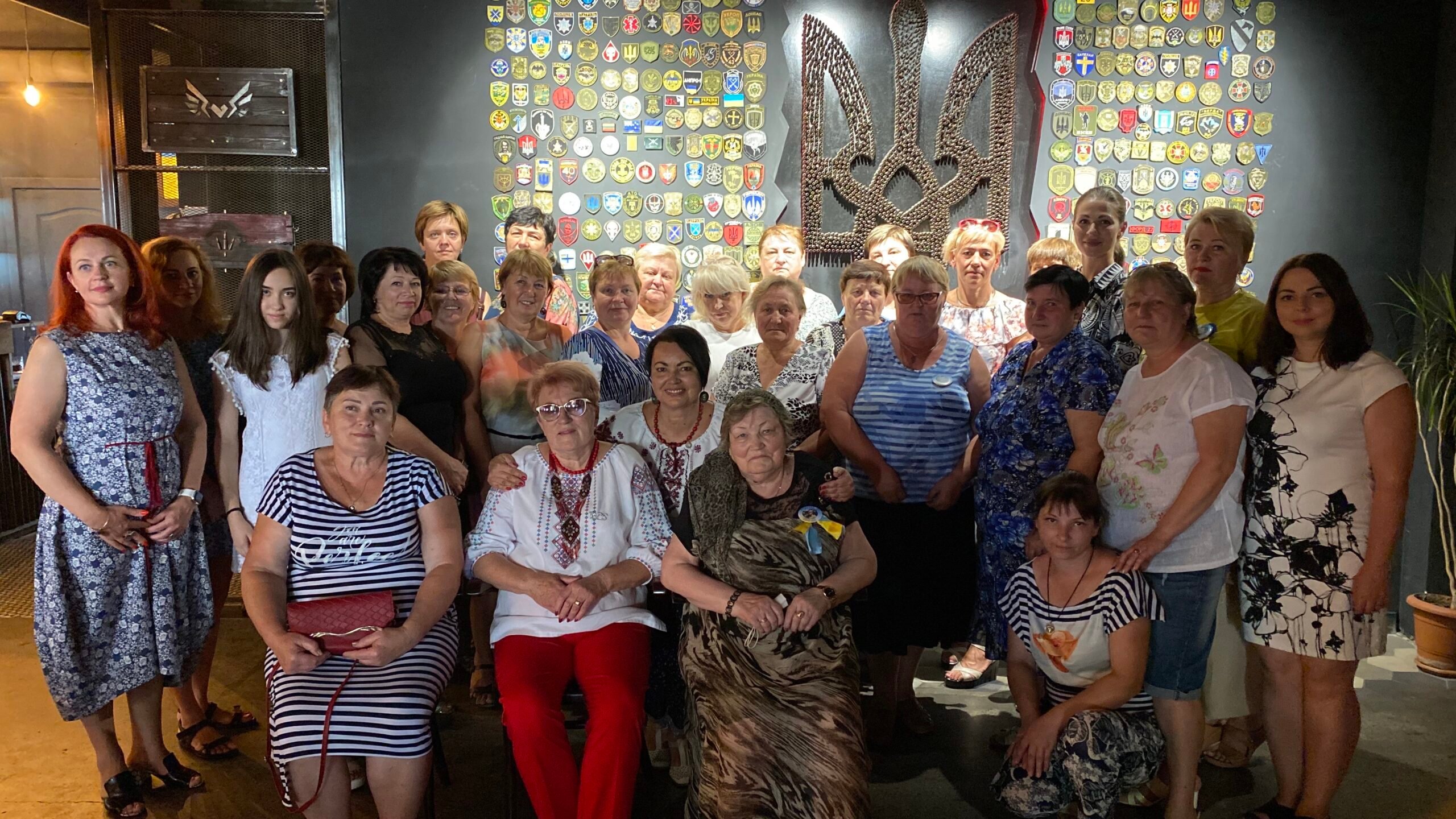
The psychotherapist initiated the creation of separate groups with the fathers of the victims. Because husbands often do not reveal themselves to their wives.
"They say to women: 'Go talk to a specialist, and I'll handle it myself.' At such special events for parents, there are different conversations and tears. You know, it is worth a lot to earn such a man's tears; you need to enter into his trust. I try to do everything to make men cry."
Problems TAPS encountered and assistance to public organization
TAPS Ukraine tried to bring the organization to the national level so that such centers as in Dnipro would appear in other cities.
"Families organize separate initiatives, but they are small, aimed at some kind of memorial work or receiving social benefits. We could not find active people in the cities who would take up this idea on a large scale," says Yulia Dmytrova.
The problem is that everything depends on the deceased soldiers' families in such unions. They need to be united and motivated, and it's complicated. Also, in the first stage, when the organization is just developing, there will be no wages at all. TAPS Ukraine in Dnipro exists on donor funds. The NGO will not be able to finance other branches; they must become financially independent. But the Dnipro branch is ready to support similar initiatives with its experience and developments.
You can support the organization financially so that it can take care of as many families of the fallen heroes as possible. TAPS also welcomes volunteers who can organize an event for families. Yulia Dmytrova explains:
"Something like art therapy, for example. Something that can unite families. We have electronic questionnaires on the website for the bereaved families if you want to join, and separately for volunteers."
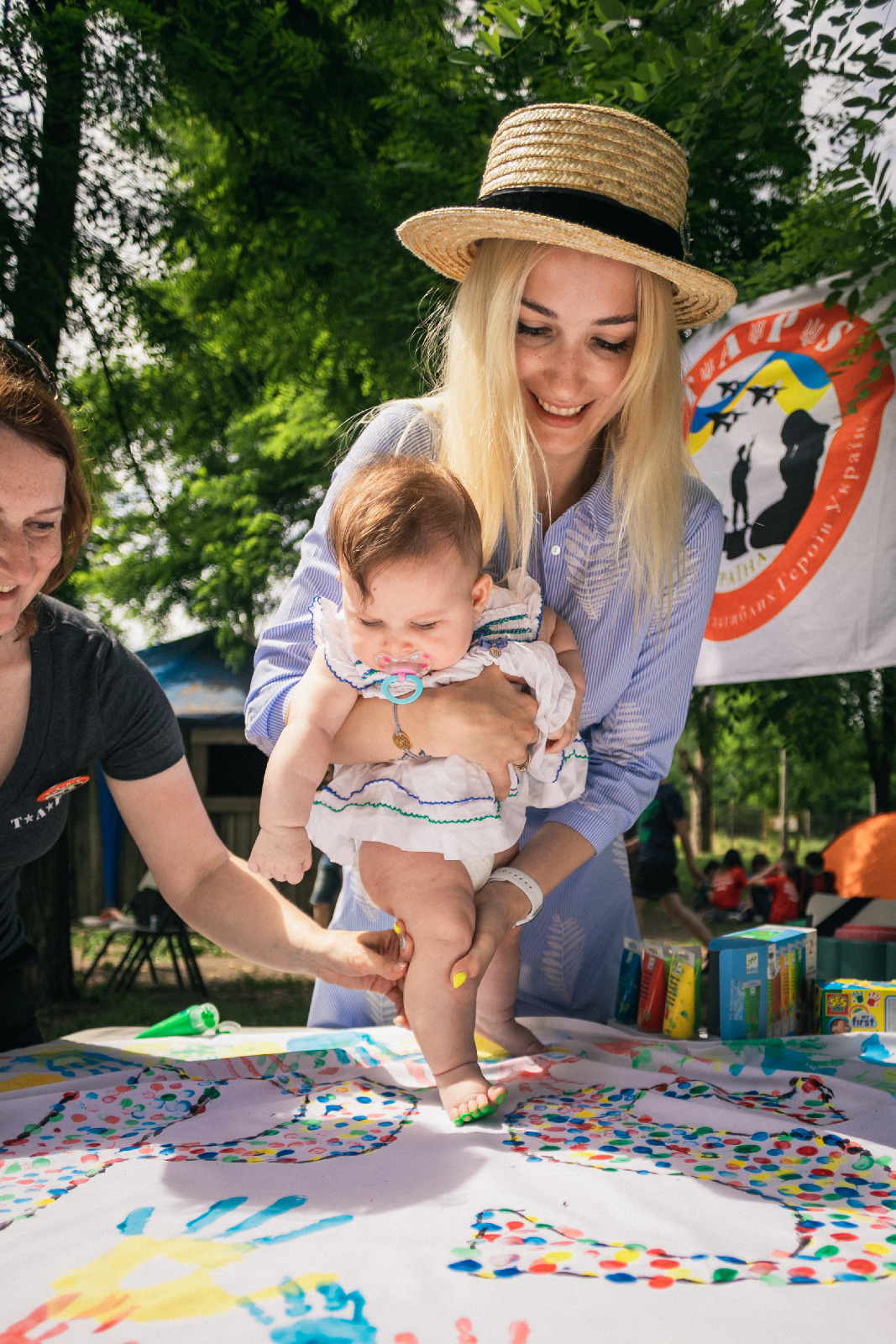
Also, the organization lacks lawyers and advocates who understand military issues and will be able to help families resolve such matters.
How to communicate with grieving families? Olena Shylova and Oleh Chabanenko advise
What you should not do is devalue grieving. You should not say cliche phrases, for example:
- Lord takes the best;
- We will get through everything;
- It will pass;
- Death has taken its own, don't shed tears;
- We all will be there. Everyone goes through it. All experiences subside;
- Time cures;
- They are better off there;
- I understand how it hurts;
- Hold on because others have it worse than you;
- You have to live for… Be strong. You must endure;
A person needs sympathy and warmth, the opportunity to express their feelings, emotions, and experiences.
"The most important thing is just to be around. Listen, hold hands, hug. Let them cry. Tears alone will not help. When a person cries to someone or with someone, this is helpful. When you share grief, it becomes half the grief. And when you share joy, it doubles," says Oleh Chabanenko.
Olena Shylova also advises helping physically with things that a person experiencing a loss cannot cope with on their own due to inhibition of perception. For example, you can prepare a meal or babysit the children.
Newsletter
Digest of the most interesting news: just about the main thing



